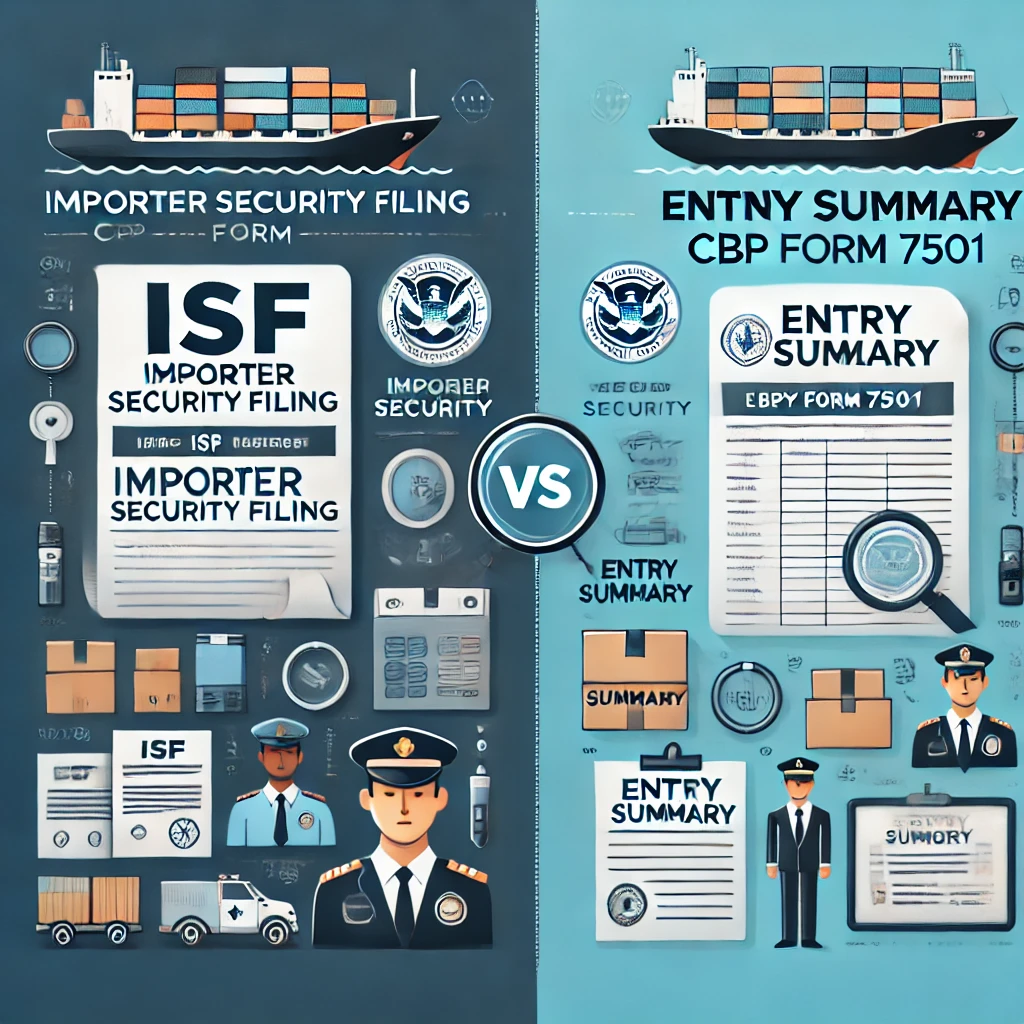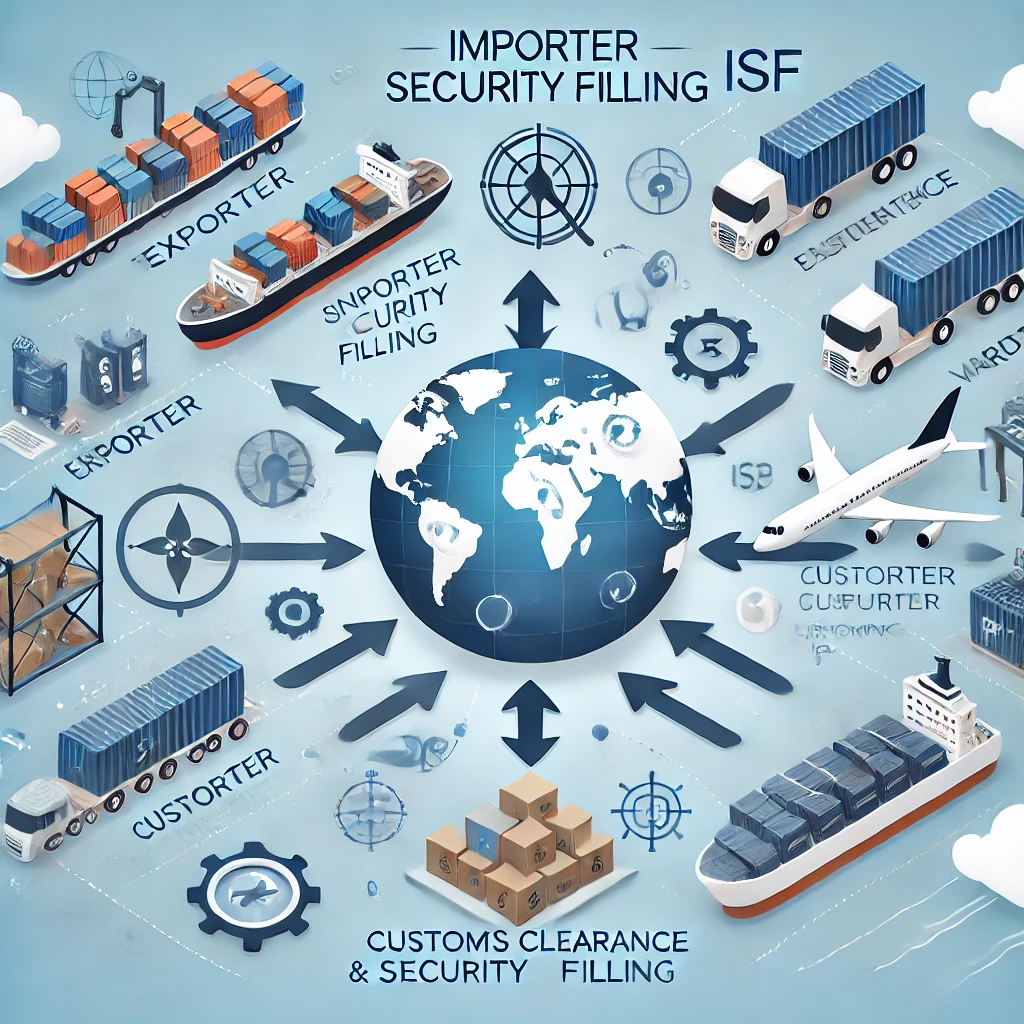Key Insights on What Is ISF
This article provides a detailed explanation of ISF, highlighting its key features, practical uses, and relevance for professionals and businesses involved in international trade and supply chain management.

What Is ISF (Importer Security Filing)?
The Importer Security Filing (ISF) is a mandatory electronic filing that importers must submit to U.S. Customs and Border Protection (CBP) before their ocean cargo arrives in the U.S. The filing provides detailed shipment data to enhance cargo security and customs enforcement.
Key ISF Filing Requirements (10+2 Rule)
Requirement | Responsibility |
Importer Name & Address | Importer provides legal business details. |
Seller Name & Address | Identifies the overseas seller/exporter. |
Buyer Name & Address | Identifies the U.S. buyer receiving the cargo. |
Manufacturer Name & Address | Details of the production facility. |
Ship-To Party | The final U.S. delivery destination. |
Container Stuffing Location | Where the cargo was loaded into the container. |
Consolidator Name & Address | Party responsible for consolidating shipments. |
Bill of Lading Number | Unique shipment tracking reference. |
Commodity HTS Code | Harmonized Tariff Schedule (HTS) classification. |
Country of Origin | Declares where the goods were produced. |

Key Features of ISF (Importer Security Filing)
1. Mandatory for Ocean Shipments
- ISF is required only for maritime imports (not for air, rail, or truck shipments).
- Must be filed at least 24 hours before cargo is loaded onto the vessel.
2. Enhances U.S. Cargo Security
- Provides early visibility of incoming shipments for CBP screening.
- Helps identify high-risk shipments before they reach the U.S.
3. ISF 10+2 Compliance Rule
- “10” Data Elements submitted by the importer.
- “2” Data Elements submitted by the carrier (Vessel Stow Plan & Container Status Message).
4. Penalties for Non-Compliance
- Late or inaccurate filings can result in fines up to $5,000 per violation.
- CBP may hold or refuse entry for non-compliant shipments.
5. Digital Filing & Integration
- ISF can be submitted via CBP’s Automated Manifest System (AMS) or through freight forwarders, customs brokers, and third-party filing services.
Practical Uses of ISF (Importer Security Filing)
1. Ensuring Smooth Customs Clearance
- ISF filing helps avoid customs delays and speeds up cargo release.
2. Preventing Supply Chain Disruptions
- Businesses rely on to ensure seamless logistics and delivery schedules.
3. Compliance with U.S. Trade Laws
- ISF compliance is essential for importers to avoid penalties and shipment holds.
4. Risk Management for International Trade
- ISF helps prevent cargo misclassification, fraud, and supply chain security risks.

Advantages and Challenges of ISF Filing
Advantages | Challenges |
Ensures security and transparency in imports. | Strict deadlines and penalties for late filings. |
Reduces customs delays and clearance time. | Applies only to ocean freight (not other shipping modes). |
Helps importers comply with U.S. trade regulations. | Complex filing process for businesses unfamiliar with ISF rules. |
Enhances tracking and risk management for shipments. | Requires coordination between importers, forwarders, and carriers. |
ISF vs. Other U.S. Customs Filings
Filing Type | Purpose | Applies To |
ISF (Importer Security Filing) | Security screening before cargo arrives. | Ocean shipments only. |
Entry Summary (CBP Form 7501) | Declares import details and duties. | All U.S. imports. |
Bill of Lading (BOL) | Shipment contract between buyer & carrier. | All transport modes. |
Manifest Filing | Carrier provides cargo details to CBP. | Required for all imports. |

When to Use ISF?
- Mandatory for all ocean cargo shipments entering the U.S.
- Essential for importers managing customs clearance and supply chain security.
- Recommended for businesses handling frequent containerized imports.
- Not required for air, truck, or rail shipments.
Conclusion
ISF (Importer Security Filing) is a critical compliance requirement for businesses shipping ocean cargo to the U.S. By ensuring accurate and timely ISF submissions, importers can avoid penalties, streamline customs clearance, and improve supply chain security.
For businesses involved in global trade, freight forwarding, and logistics, understanding ISF regulations and filing processes is essential to maintaining smooth and legally compliant operations.
